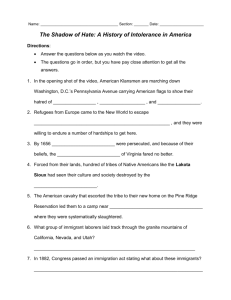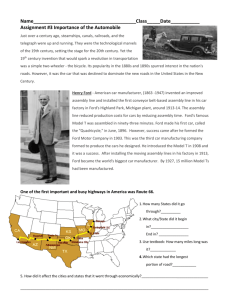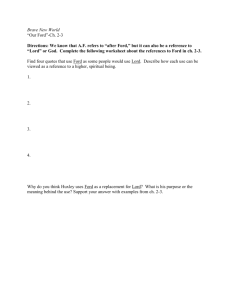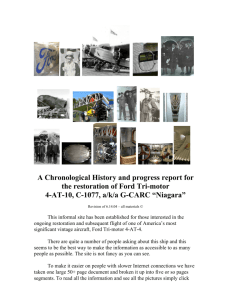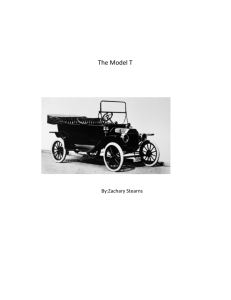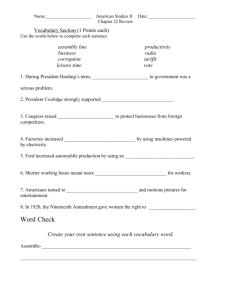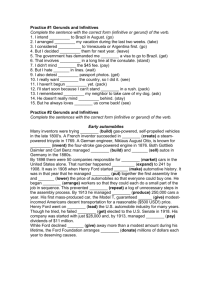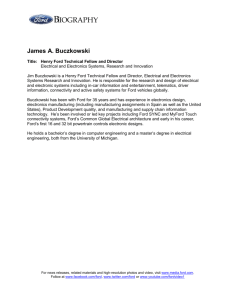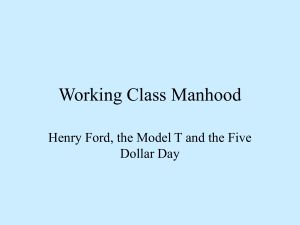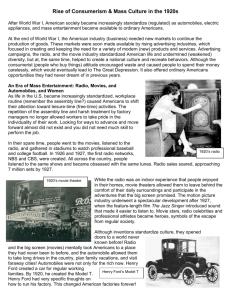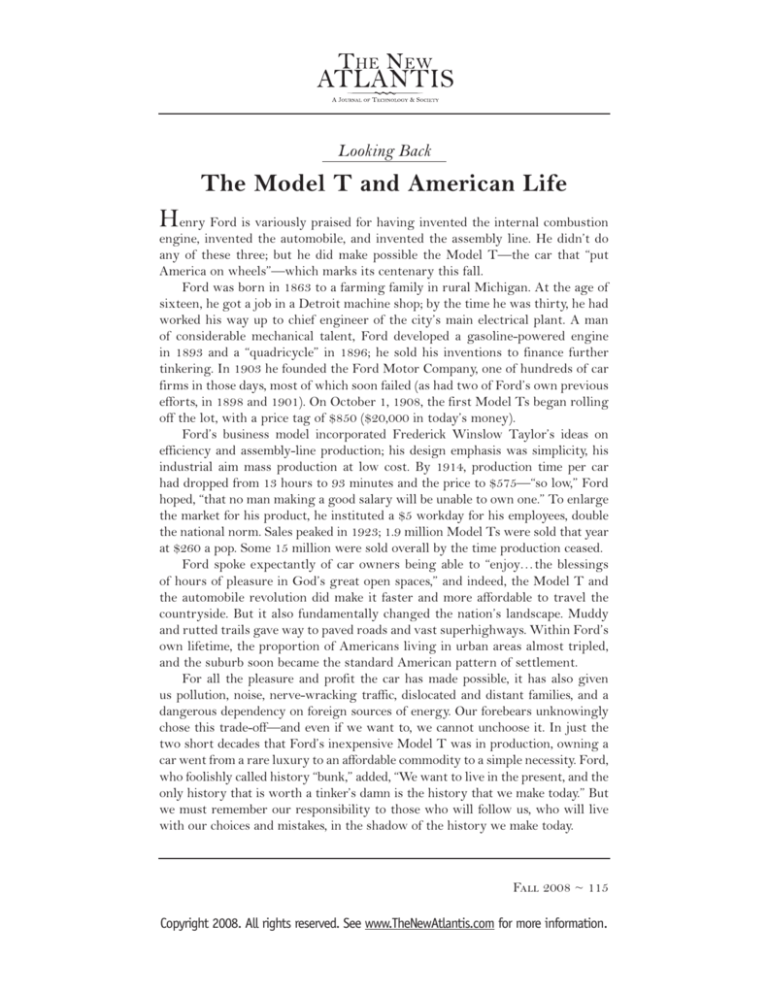
Looking Back
The Model T and American Life
Henry Ford is variously praised for having invented the internal combustion
engine, invented the automobile, and invented the assembly line. He didn’t do
any of these three; but he did make possible the Model T—the car that “put
America on wheels”—which marks its centenary this fall.
Ford was born in 1863 to a farming family in rural Michigan. At the age of
sixteen, he got a job in a Detroit machine shop; by the time he was thirty, he had
worked his way up to chief engineer of the city’s main electrical plant. A man
of considerable mechanical talent, Ford developed a gasoline-powered engine
in 1893 and a “quadricycle” in 1896; he sold his inventions to finance further
tinkering. In 1903 he founded the Ford Motor Company, one of hundreds of car
firms in those days, most of which soon failed (as had two of Ford’s own previous
efforts, in 1898 and 1901). On October 1, 1908, the first Model Ts began rolling
off the lot, with a price tag of $850 ($20,000 in today’s money).
Ford’s business model incorporated Frederick Winslow Taylor’s ideas on
efficiency and assembly-line production; his design emphasis was simplicity, his
industrial aim mass production at low cost. By 1914, production time per car
had dropped from 13 hours to 93 minutes and the price to $575—“so low,” Ford
hoped, “that no man making a good salary will be unable to own one.” To enlarge
the market for his product, he instituted a $5 workday for his employees, double
the national norm. Sales peaked in 1923; 1.9 million Model Ts were sold that year
at $260 a pop. Some 15 million were sold overall by the time production ceased.
Ford spoke expectantly of car owners being able to “enjoy. . . the blessings
of hours of pleasure in God’s great open spaces,” and indeed, the Model T and
the automobile revolution did make it faster and more affordable to travel the
countryside. But it also fundamentally changed the nation’s landscape. Muddy
and rutted trails gave way to paved roads and vast superhighways. Within Ford’s
own lifetime, the proportion of Americans living in urban areas almost tripled,
and the suburb soon became the standard American pattern of settlement.
For all the pleasure and profit the car has made possible, it has also given
us pollution, noise, nerve-wracking traffic, dislocated and distant families, and a
dangerous dependency on foreign sources of energy. Our forebears unknowingly
chose this trade-off—and even if we want to, we cannot unchoose it. In just the
two short decades that Ford’s inexpensive Model T was in production, owning a
car went from a rare luxury to an affordable commodity to a simple necessity. Ford,
who foolishly called history “bunk,” added, “We want to live in the present, and the
only history that is worth a tinker’s damn is the history that we make today.” But
we must remember our responsibility to those who will follow us, who will live
with our choices and mistakes, in the shadow of the history we make today.
Fall 2008 ~ 115
Copyright 2008. All rights reserved. See www.TheNewAtlantis.com for more information.


